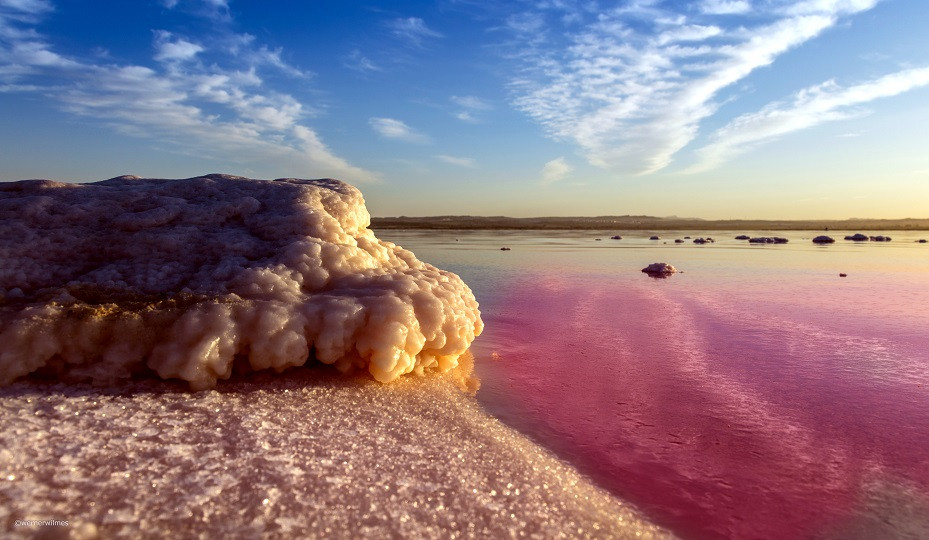The Complutense University of Madrid (UCM) delivers to the city council the final report of the technical-scientific study on therapeutic uses of the brine and peloids of the Laguna Rosa de Torrevieja

The work is part of a project co-financed by the European Union through the Operational Program of the European Regional Development Fund (ERDF) of the Valencian Community 2014-2020.
The enhancement and use of natural resources, such as brine and mud from the Laguna Rosa de Torrevieja, is one of the twenty (20) needs that make up the Early Demand Map (MDT) of needs for Public Procurement of Innovation .
The Laguna Rosa has been used for the extraction of salt and, more recently, a tourist use of the immediate surroundings has begun. However, uses such as hydrotherapeutic, cosmetic and bio-technological uses have not been explored to date.
Diversifying Torrevieja's economy beyond typical residential tourism was one of the conclusions of the Torrevieja Strategic Tourism Plan, which points out the opportunity to work on endogenous resources that provide Torrevieja with differentiating elements and constitute competitive advantages to attract entrepreneurial talent and generate qualified employment. .
The aim is to diversify the tourist offer and the local economy, the seasonal adjustment of tourism and the generation of quality employment based on knowledge and high value-added services.
The conclusions of the UCM study, regarding the brine from the Laguna Rosa are based on the similarity with other hypersaline waters, resulting in that the brine from La Laguna Rosa de Torrevieja has cosmetic and dermatological properties that can be used, as well as Thalassohydric factor in a Thalassotherapy center or as a raw material for the production of cosmetics and dermatological preparations that would have:
- Skin regulating effect
- Cleaning and disinfecting action
- Exfoliating and skin renewing properties
- Anti-inflammatory and antialgic properties
- Regulating effect of sebaceous content
- Softening action on the skin
- Prevention of premature aging
And regarding what is commonly called sludge, the report establishes:
“The possible peloid or saline slime could have excellent cosmetic and dermatological properties, which would deserve a separate study for its use.
From the point of view of thermotherapy due to similarity with those already mentioned in Carhue (Argentina), the Dead Sea (Israel), Salina de Sečovlje (Slovenia) and Lo Pagán (Spain), they could have therapeutic utility in the treatment of diseases of the locomotor system and in dermatology.
If it is decided to obtain peloids from the Laguna Rosa de Torrevieja, taking into account the need to conserve and protect the environment and avoid sensitive actions on it, the possibility of preparing extemporaneous peloids should be considered using the waters of the Laguna as liquid phase and selecting a solid phase suitable thereto.
Given all the special conditions that exist in the surroundings of the Laguna Rosa, it would be necessary to consider the possibility of creating a Thalassotherapy center that would take advantage of the waters of the sea and of the lagoon itself ”.
Added to the study at the Complutense University of Madrid is a second study carried out by the University of Alcalá through the General Foundation of the University of Alcalá (FGUA).
Additionally, and within the framework of the parallel project "PROSPECTIVE STUDY FOR THE VALUE OF THE ROSA DE TORREVIEJA LAGOON BRINE: BIOTECHNOLOGY AS A MEANS FOR IMPROVING PEOPLE'S QUALITY OF LIFE", the University of Alicante (UA ) has well advanced a third study on the microbiota in hypersaline environments, such as the Laguna Rosa de Torrevieja.
The report can be downloaded in its entirety at the municipal website torrevieja.es.
